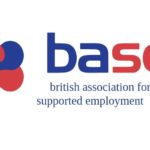The Committee has today launched an inquiry into Alternative Provision (AP). Alternative provision, provided in settings such as Pupil Referral Units, educates young people who do not attend mainstream school for a variety of reasons, such as school exclusion, behaviour issues, school refusal, or short- or long-term illness.
Rt Hon Robert Halfon MP, Chair of the Education Select Committee, said:
“Some of the most disadvantaged young people in our society are educated through alternative provision and we want to establish whether they are receiving the best possible support.
“Students in alternative provision are far less likely to achieve good exam results, find well-paid jobs or go on to further study. Only around 1% of young people in state alternative provision receive five good GCSEs. As a Committee dedicated to promoting social justice, we are committed to examining these issues in our inquiry and pressing Government, local authorities, schools and others to do all they can to improve educational outcomes and life chances. Every student, whatever their background, should be given the chance to climb the educational ladder of opportunity.”
In addition to looking at the quality of their education and the outcomes of these students, the Committee will also look at safeguarding and resources within AP, provision of AP within schools and regulation of independent providers [full inquiry terms of reference included below].
Background
Pupil Referral Units (PRUs) constitute one form of AP. Department for Education statistics indicate that there are 353 schools in England and that are 15,000 students in PRUs, an increase of 16% since 2011/12.
Permanent and fixed-term exclusions have risen in recent years, mainly affecting secondary and special schools. There were around 35.2 permanent exclusions per day in 2015/16, up from an average of 30.5 per day in 2014/15.
DfE statistics also show that:
- Pupils known to be eligible for and claiming free school meals (FSM) were around four times more likely to receive a permanent or fixed period exclusion than those who are not eligible.
- Pupils with identified special educational needs (SEN) accounted for almost half of all permanent exclusions and fixed period exclusions
- Boys were over three times more likely to receive a permanent exclusion and almost three times more likely to receive a fixed period exclusion than girls.
Terms of Reference
The Education Committee invites written submissions by 1 November on the following issues:
- Routes into alternative provision.
- The quality of teaching in alternative provision (including pupil referral units);
- Educational outcomes and destinations of students;
- Safety, accommodation, and provision of resources for students;
- In-school alternatives to external alternative provision;
- Regulation of independent providers.
Written evidence should be submitted on the inquiry page on the Committee’s website.
Editor’s Notes
- The Government defines Alternative Provision as “education arranged by local authorities for pupils who, because of exclusion, illness or other reasons, would not otherwise receive suitable education”. AP extends to the education of pupils on fixed period exclusions (internal exclusion), in addition to “pupils being directed by schools to off-site provision to improve their behaviour”.
- Sources: Education and Training Statistics for the United Kingdom 2016: https://www.gov.uk/government/uploads/system/uploads/attachment_data/file/567215/SR54_2016_Text.pdf Permanent and Fixed Period Exclusions in England: 2015 to 2016 [SFR 35/2017, 20 July 2017]
https://www.gov.uk/government/uploads/system/uploads/attachment_data/file/645075/SFR35_2017_text.pdf







